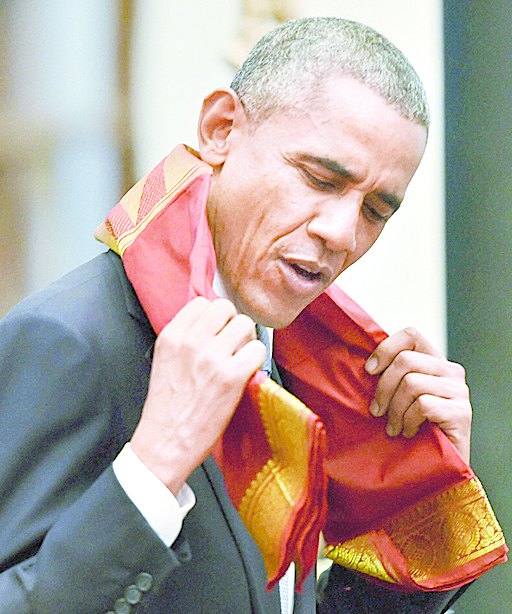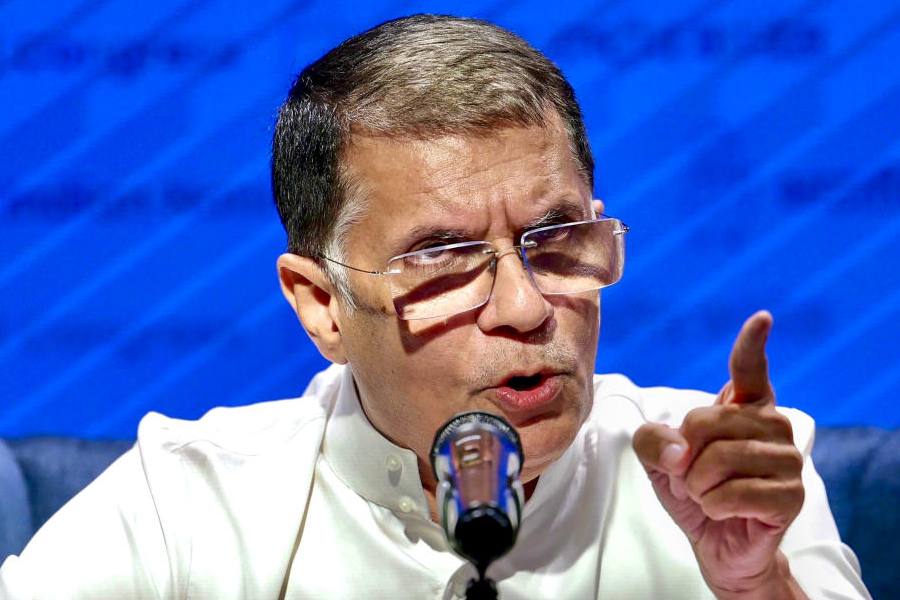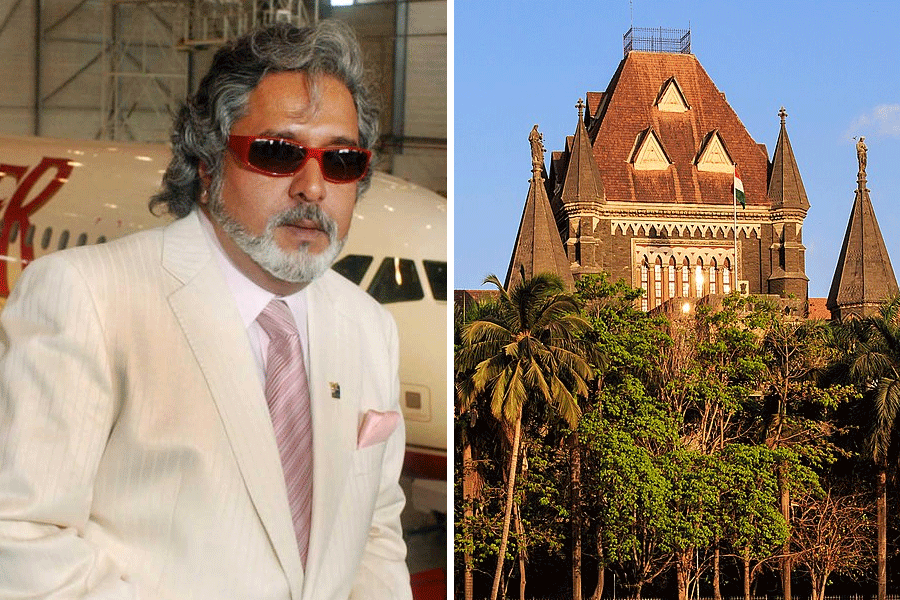
A British description of a garden party in Delhi's Metcalfe House in the twilight of Bahadur Shah's reign could be a metaphor for India's interaction with the United States of America. The writer described a bunch of Mughal princes standing in haughty aloofness in all their finery. If any English guest happened to look their way, they were at once all ingratiating smiles and salaams. The moment attention had passed they retreated into scornful aloofness, pretending only disdain for the throng but keeping a sharp eye open for the next English person who might notice their existence.
Presumably, the Indo-US relationship will acquire greater coherence once Subrahmanyam Jaishankar gets going as foreign secretary, and the abrupt change and a seemingly marginalized external affairs minister are forgotten. Ashton Carter taking over as American defence secretary might also help. For now, however, the bear hug, talk of chemistry, brandishing (on one side only) of the intimacy of a first name, and the boast (again, one-sided) of cozy familiarity are embarrassing reminders of the Metcalfe House tableau. This alone may not matter much (except in the personal sense of exposing a weakness in the Indian psyche) if only one knew what exactly India's foreign policy is. Sitaram Yechury once suggested that after years of anti-American rhetoric, India was desperate to become the new Pakistan. Some Indians take pride in having ousted Pakistan from America's affections. At the same time, there are complaints that the US as a weapons supplier is not half as accommodating as the old Soviet Union, which supplied MiG-29 fighters before any Warsaw Pact members had them and before the needs of even the Soviet air force had been met. With all these contrary pulls, Indian foreign policy seems suspiciously like a chain of ad hoc responses.
In contrast, the US moves according to a well thought-out, predetermined pattern based on a clear-headed assessment of its permanent interests. Only the players - not the underlying principles, which are not always principled - are replaced as global realpolitik changes. India does not get the American arms and dual-purpose technology it wants because security has never been an end in itself for the US. Security is integral to American political theology. No irrational love of Pakistan or anti-Indian phobia inspired the notorious US 'tilt'. State department records show India was thought to be of 'negligible positive strategic importance'. Pakistan mattered because it occupied 'one of the most strategic areas in the world' and was ideal for 'ideological and intelligence penetration' of the Soviet Union. Karachi, Lahore, Rawalpindi and Peshawar were potential launching pads for operations against Soviet industries. Pakistan was also 'willing to make a significant contribution to the defence of the Middle East provided its fear of India (was) removed'. The US decided to do this while ensuring, on British advice, that the rearmament programme was not 'directed too obviously against India'.
The subsequent US aim of promoting China to counter the Soviet Union created another set of imperatives. Now, the need for further leverage in negotiations with China has produced Barack Obama's 'pivot to Asia' that the Chinese interpret as another term for containment. Apart from the search for a market, the Obama visit was all about committing India to that exercise. But despite the euphoria over a nuclear breakthrough (whose details are still not known), not much of substance appears to have emerged from those hectic three days. Obama's criticism of India's business methods - 'there are still too many barriers, hoops to jump through' - seems to be ignored. Yet, this is exactly what Lee Kuan Yew has been dinning into Indians for more than fifty years, except that he mentions hurdles instead of hoops. 'To realize India's potential for exports,' he said on his last trip to Delhi, 'it must dismantle the myriad of regulatory hurdles.'
Otherwise, the most significant outcome of Obama visit was the joint strategic vision document concerning the Asia-Pacific and Indian Ocean region, and the 10-year renewal of the 2005 new framework on defence. But however defining the partnership might be, a full-blown military relationship will remain elusive until India is prepared to sign a range of undertakings that US law demands for technology transfer. I cannot pretend to understand the technical provisions of the communications interoperability and security memorandum of agreement, the logistics support agreement and the cooperation agreement for geospatial cooperation. But reports indicate that the eight sophisticated Boeing P-8I long-range maritime reconnaissance and anti-submarine warfare aircraft the Indian navy bought were delivered without secure and encrypted communications and satellite navigational aids because India hadn't signed the necessary secrecy agreements. India's initial hesitation over another of these conditions, the general security of military information agreement, was the main reason why the light combat aircraft, hailed in 1981 as the epochal prototype of a range of joint Indo-US ventures, was not handed over to the air force until this month. The Tejas (the LCA's new name) still won't get final operational clearance until the end of 2015, 34 years after the aircraft was conceived.
India certainly needs the US. As John Kerry rightly said at the Vibrant Gujarat investment summit, only American capital and technical expertise can facilitate India's economic revolution. The government wants American weaponry. If any power can restrain Pakistan from sponsoring terrorism, it is the US. But what price is India willing to pay for these privileges? American expectations - troops for Afghanistan, ships to the South China Sea, peace missions in Iraq and Syria, and battling the 'Islamic State of Iraq and Greater Syria' - recall Chandra Shekhar, who revolutionized Indo-US military cooperation during Operation Desert Storm, baulking at sending troops to Kuwait. 'We can't even defend our own borders,' he pleaded, 'how can we defend other countries?'
Nor can India forget that China is its largest trading partner if services are excluded. India and China share a long and disputed border. As Pakistan's 'all-weather' friend, China supplied much of the missile and nuclear technology that makes Pakistan so dangerous. China's past involvement in the Northeast's armed rebellions, its subversive role among India's smaller neighbours, and activities in the surrounding seas cannot be overlooked. All this calls for a nuanced multiple-pronged response rather than outright confrontation.
Moreover, if England and America are two countries separated by a common language, India and America are two countries separated by a common democracy. Whatever the leadership might aspire to, the partnership must meet popular expectations. This is a novel factor for the Americans for the people were not a factor in dealing with other Asian allies like Reza Pahlavi's Iran or Yahya Khan's Pakistan. Here, fears of public hostility forced Indira Gandhi to abandon plans to invest the PL480 wheat money in education. Earlier, Jawaharlal Nehru feared his position in the Congress would weaken if he accepted the invitation from Louis Johnson, the American envoy, to accompany him to Washington to meet Franklin Roosevelt. Reminiscent of Metcalfe House posturing, Congressmen already furiously resented Johnson's claim that Nehru had asked to meet him.
When details of the 123 agreement's liability provision are revealed, they might well bear out the exuberance with which news of a breakthrough was greeted. Meanwhile, the need for American investment should ensure greater attention to Obama's comment about India's bureaucracy. Only when General Electric and Westinghouse take up their land options for nuclear reactors and other companies start operating in India to their - and our - satisfaction will we know that foreign businessmen do not have to jump through hoops or cross hurdles. There will be no need, then, to go overboard over American presidential graciousness like the Bihari legislator who vowed, in 2000, not to wash for three months the hand Bill Clinton had shaken.










